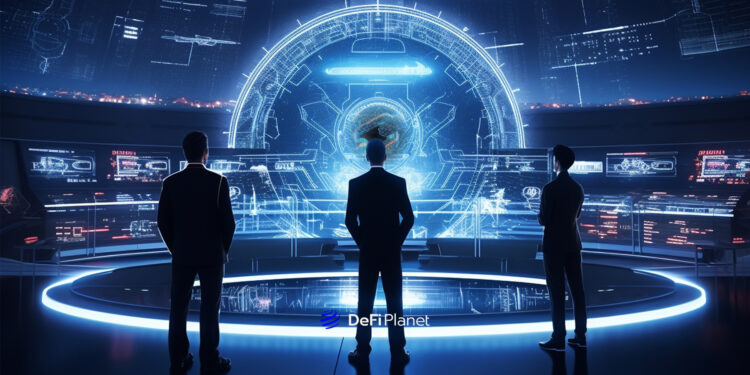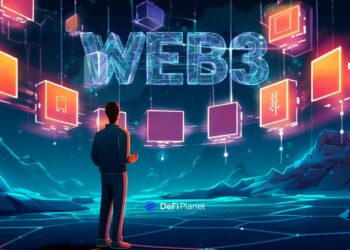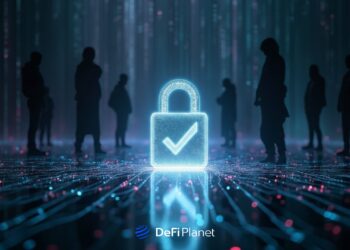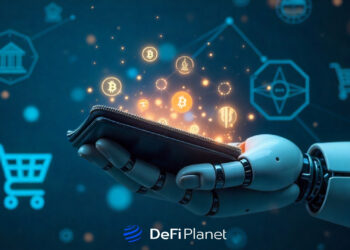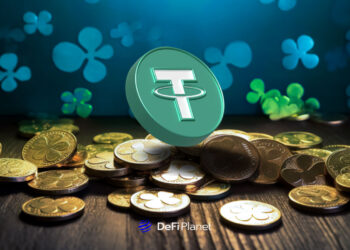In the early days of the internet, few could have predicted just how profoundly digital technologies would come to shape the 21st century. Yet today, we are on the brink of another seismic shift, as multiple epoch-defining technologies develop at breakneck speed simultaneously. This time, the shift is driven by a triumvirate of transformative forces: Blockchain Technology, Data Science, and Artificial Intelligence (AI). Each of these technologies is powerful and game-changing in its own right, but it is their convergence that is poised to redefine how we manage trust, information, and decision-making in a decentralized digital future.
This convergence isn’t just theoretical. It’s already reshaping sectors from finance to healthcare, from logistics to content creation. For the blockchain ecosystem, i.e. the cryptoverse, understanding the interplay with data science and AI is no longer optional – it is essential.
Blockchain: The Backbone of Decentralized Trust
At its core, blockchain technology is about verifiable trust. It enables data integrity and immutability in a way that is decentralized, censorship-resistant, and transparent. Blockchain platforms eliminate the need for intermediaries and allow for programmable value through smart contracts. Whether it’s Bitcoin providing monetary scarcity or Ethereum enabling permissionless applications, blockchain has laid the groundwork for a new model of trust in the digital realm.
Yet blockchain, by design, often sacrifices speed and scalability for security and decentralization – a conundrum tagged the “Blockchain Trilemma” by Ethereum’s inventor, Vitalik Buterin. On-chain data is also relatively sparse and structured in a way that isn’t ideal for analysis. This is where data science and AI come in.
Data Science: Extracting Meaning from Chaos
Data science is the discipline that allows us to make sense of complexity. By applying statistical methods, machine learning, and data engineering techniques, data scientists turn raw data into actionable insights. While blockchain offers transparent and immutable data, it is data science that enables the extraction of patterns, trends, and anomalies from that data.
For example, in the Decentralized Finance (DeFi) space, on-chain analytics platforms now use data science to assess protocol risk, trading volume, and liquidity flows. This makes blockchain data intelligible and usable – not just to developers, but also to retail users, institutional investors, and regulators.
Furthermore, when data science tools are applied across both on-chain and off-chain data (e.g., market sentiment, social media activity, or developer contributions), it creates a more holistic understanding of ecosystem health.
Artificial Intelligence: From Insight to Autonomy
Artificial Intelligence builds on data science by introducing “learning” and “decision-making” capabilities. While data science answers the question of “what happened” and “why,” AI is concerned with “what should happen next.” From Natural Language Processing (NLP) to predictive modelling, AI systems can automate reasoning, simulate scenarios, and make autonomous decisions.
When deployed in blockchain environments, AI has already shown its potential. In crypto trading, AI algorithms can identify arbitrage opportunities, detect fraudulent behaviour, and optimise portfolio investment strategies. In Decentralized Autonomous Organizations (DAOs) – itself a key innovation of blockchain technology – AI agents are being used to assist in proposal evaluation, analysing member voting patterns, and treasury management.
The intersection of AI and blockchain is also giving rise to “autonomous agents”, i.e. digital entities that can own crypto wallets, enter into contracts, and act independently within decentralized ecosystems. The implications are profound: a world where machines are not just data processors but also economic actors. There will be many policy and legal questions to answer in future, such as, can bots and machines sue and be sued? Should machines pay tax?
The Emerging Synergy
What makes this triumvirate truly game-changing is how each technology compensates for the others’ limitations while amplifying their strengths.
- Blockchain ensures the integrity and provenance of data used by AI and data science models.
- Data science structures and interprets blockchain’s vast transactional data
- AI makes systems smart and adaptive such that it is able to act on data in real time.
One illustrative example is decentralized identity (DID). Here, blockchain provides a secure and user-owned identity layer, data science helps profile and verify these identities, and AI can dynamically assess risk or tailor services based on behavioural patterns – all without compromising user privacy.
Another example is in supply chain transparency. Blockchain ensures traceability of goods, data science identifies inefficiencies or bottlenecks, and AI optimizes routing, inventory, and predictive maintenance.
Future Frontiers of Collaboration
As this triumvirate matures, several high-impact areas are emerging where the synergy could be especially powerful:
- Decentralized AI Marketplaces: Platforms where data, models, and computing power are traded on-chain. Blockchain ensures provenance and fairness, while AI models can be trained on diverse datasets with federated learning techniques.
- Privacy-preserving Machine Learning: Techniques like “Homomorphic Encryption” and “Zero-Knowledge Proofs (ZKPs)” can allow AI to learn from encrypted data without exposing it, thus combining the privacy-first ethos of Web3 with the power of AI.
- Smart Governance Systems: DAOs could become significantly more effective with AI-driven tools that analyze proposals, simulate their impact, and identify malicious actors, all underpinned by transparent, tamper-proof records.
- Regenerative Finance (ReFi): Climate models driven by AI, validated on-chain through satellite and sensor data, and funded by tokenized carbon markets are already taking shape. This is impact investing reimagined through a technical lens.
Looking ahead
The fusion of blockchain technology, data science, and AI is not just a passing fad – it’s a fundamental shift. Blockchain secures and decentralizes; data science interprets and informs; and AI predicts and acts. Together, they form a virtuous cycle of innovation that promises to be greater than the sum of its parts.
Builders, investors, and policymakers in the Web3 space must engage deeply with all three. The most transformative applications of the next decade will not be built with blockchain alone, but with blockchain as the trust layer, data science as the compass, and AI as the engine.
We are entering a new era – one where intelligence is decentralized, trust is programmatic, and data flows securely across transparent public, permissionless networks. The chain of thoughts and innovation has led us here. The next move is ours.
Olu Omoyele is the founder & CEO of DeFi Planet. He has over two decades of experience in financial regulation and banking risk management. Chain of Thoughts is his monthly column on the cryptoverse.
Disclaimer: This piece is intended solely for informational purposes and should not be considered trading or investment advice. Nothing herein should be construed as financial, legal, or tax advice. Trading or investing in cryptocurrencies carries a considerable risk of financial loss. Always conduct due diligence.
If you would like to read more articles like this, visit DeFi Planet and follow us on Twitter, LinkedIn, Facebook, Instagram, and CoinMarketCap Community.
Take control of your crypto portfolio with MARKETS PRO, DeFi Planet’s suite of analytics tools.”

